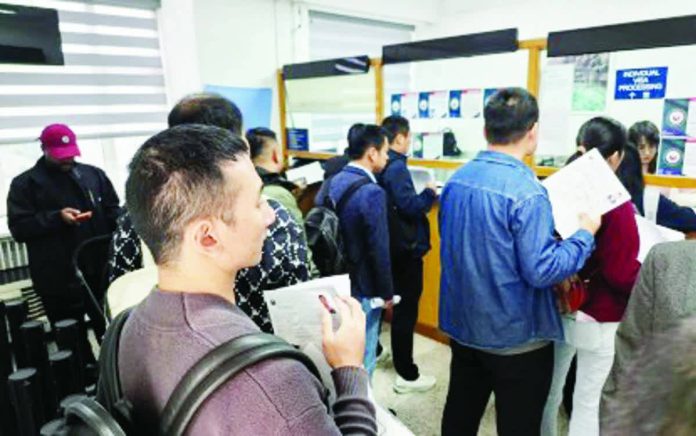
THE PHILIPPINES will reopen eVisa applications for Chinese visitors in November.
Chinese applicants who will visit the Philippines for tourism or business purposes can apply for the eVisa if they are travelling for a non-extendable period of 14 days. They should enter through the Ninoy Aquino International Airport or the Mactan-Cebu International Airport, the Philippine Embassy in Beijing said.
It said Chinese travelers who wish to stay in the Philippines for more than 14 days, as well as other eligible nationals living in China, may still apply for the conventional visa through the nearest Visa Application Centers that will open in Beijing, Chongqing, Fuzhou, Guangzhou, Hong Kong, and Shanghai.
The embassy said it would soon provide more details about the eVisa, including the relevant websites and procedures for the submission of requirements.
The Philippines started issuing eVisas to Chinese tourists in August 2023, but suspended it a few months later after the Department of Justice called for stricter visa regulations to curb the influx of illegal online gaming workers to the country.
The Department of Tourism (DOT) on October 17 said the relaunch of the eVisa system “directly responds to persistent market demand and industry feedback, and addresses a gap that has constrained our regional competitiveness for nearly three years.”
“The suspension of the eVisa system in 2023 had a significant and measurable impact on our ability to meet tourism targets, particularly from one of our strongest pre-pandemic markets,” Tourism Secretary Christina Frasco noted.
Frasco said that she did not expect tourist arrivals to immediately surge. But she said that this policy was a strong signal to the market that the Philippines was taking steps to improve accessibility.
China was the second largest source of foreign tourists for the Philippines in 2019, the last year before the COVID-19 pandemic. Some 1.74 million Chinese travelers went to the Philippines that year.
Earlier this year, however, Frasco said only 300,000 Chinese tourists visited the Philippines in 2024.
The DOT said 203,923 Chinese visitors have entered the Philippines as of September this year. (ABS-CBN News)







